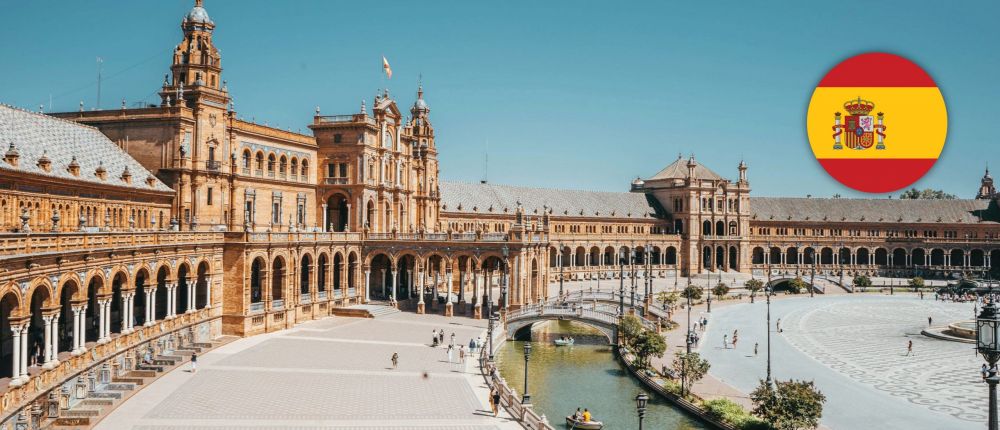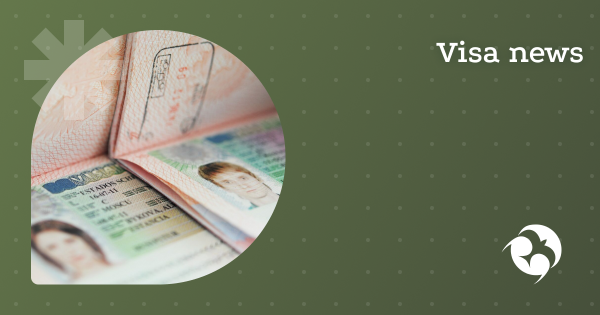Visa Digital Nomad specializes in business immigration and offers comprehensive support for obtaining a residence permit in Spain through starting a business. Our services include business project analysis, document preparation, and interaction with ENISA and UGE authorities. We will help you structure your business plan correctly and increase your chances of getting approved the first time.
The Startup visa is available to citizens of countries outside the European Union. The main requirements include the age of majority of the applicant, no criminal record and the availability of an innovative business project.
Startup visa is issued immediately for 3 years. The registration procedure takes from 3 months. Together with the main applicant, all family members (spouse, children and parents) receive a residence permit. It is especially important that a startup visa gives you the right to work from the first day, whereas a regular residence permit often does not provide such a right. To extend an entrepreneur’s visa, it is necessary to continue doing business according to the submitted plan and comply with tax obligations.
The Spanish authorities approve projects in the following areas:
- information technology;
- artificial intelligence;
- financial technologies;
- medicine and biotechnology;
- green energy.
Traditional businesses such as restaurants, gyms or language schools are not suitable if they do not have an innovative component. However, even an ordinary business can be adapted by adding technological solutions or a unique business model.
After 5 years of continuous residence in Spain, it becomes possible to obtain permanent residence. After another 5 years, you can apply for Spanish citizenship. To obtain the status, it is necessary to comply with the requirements for presence in the country for at least 183 days a year.
Key requirements
Today, the main programs are the visa for entrepreneurs under Law 14/2013 and the startup visa under Law 28/2022, which fundamentally differ in their approach to evaluating business projects.
The Law 14/2013 is aimed at entrepreneurs with ready-to-implement projects. The state organization that supports and finances small and medium-sized businesses (ENISA) conducts an assessment of economic feasibility and innovation within 20 working days. A startup visa implies a more flexible approach to innovative projects and a similar project evaluation period.
The business plan should contain a detailed description of the project (with a launch date), location, legal form of the company and the amount of investment. Important elements are a description of the product/service (highlighting innovative aspects), an analysis of the market and competitors, as well as a financial plan with sources of financing.
Officially, the deadline for reviewing an application in state agencies (UGE-CE) is 20 working days. However, in practice, the full process can take from 6 to 8 weeks, even with perfect preparation of documents. It usually takes 10-30 days to receive an ENISA report. For applicants applying through consulates, additional time is required to obtain a D visa. Thus, the total time from submitting an application to receiving a TIE is from 3 months.
An entrepreneurial visa allows you to include a spouse, children under the age of 18 (or older if they are financially dependent), as well as dependent parents in the application. Family members receive the same rights to live and work. Each family member requires an additional 50% of the IPREM (about 300€ per month).
Attachments and the cost of registration
Since October 2022, the law “Crea y Crece” (Ley 18/2022) has reduced the minimum authorized capital for SL from 3,000€ to a symbolic 1€. However, this preferential option is accompanied by a number of serious restrictions. In practice, it is clear that the majority of entrepreneurs prefer to start with 3,000euros. This eliminates additional obligations.
The company registration process includes several stages with their own cost. The total amount may vary depending on the region and the complexity of the business. Standard registration costs include:
- Checking and reserving the name in the Central Commercial Register (Registro Mercantil Central) – 15-20€;
- Notary services – from 300 to 850€;
- Registration in the commercial register – 100-200€;
- Legal and accounting services – 500-1,500€.
In addition to basic expenses, there are a number of mandatory government payments.:
- Getting a NIE (foreigner’s number) – 10-20€.
- Transfer tax on assets (Impuesto sobre Transmisiones Patrimoniales): 200-400€ when making assets as a contribution.
- Digital certificate. Free of charge upon self-receipt or 24€ for registration through an agency.
The registration process is step-by-step
1. Assessment of opportunities. It is necessary to have funds – at least € 25-30,000 in a bank account, plus money for the implementation of a business project. Age – from 18 years, no criminal record in the last 5 years, medical insurance. The stage requires a sober look at the prospects, i.e. how much experience and education correspond to the planned business, whether there is sufficient motivation for a long-term project.
2. Preparation of a business plan. The key point of preparation is to develop a convincing business plan. The document should show the innovativeness of the project, the economic benefits for the region and the potential for job creation. It is written in Spanish.
3. Company registration. The registration process takes place in several stages. First, the foreigner’s identification number (NIE) is obtained, then the company’s name is reserved in the Central Commercial Register. A bank account is opened and the authorized capital is deposited. The notary draws up the constituent documents, after which the company is registered in the commercial register. The whole process takes about a month.
4. Preparation of personal documents. The applicant’s complete dossier is being collected for submission to the migration service. All documents are translated into Spanish by sworn translators, and an apostille is affixed if necessary. Special attention is paid to medical insurance.
5. Applying for a residence permit. The documents are submitted to the Spanish Migration Service (Extranjería) or through the consulate in the country of residence. The review takes from 3 to 6 months, depending on the complexity of the case and the method of submission.
6. Obtaining a residence permit. After a positive decision, you must personally report to the police station to receive a resident card. The procedure includes the delivery of biometric data.
Obtaining a residence permit through a business in Spain requires a thorough understanding of local legislation and key procedures. Each stage has its own pitfalls, which can become a serious obstacle. Our services include preparation of documents and support before obtaining a resident’s card. We know the current requirements of migration authorities, we can suggest the optimal strategy for a specific situation and help avoid typical mistakes. Working with experts significantly increases the chances of success and saves time.
Obtaining a residence permit through a business in Spain requires a thorough understanding of local legislation and key procedures. Each stage has its own pitfalls, which can become a serious obstacle. Our services include preparation of documents and support before receiving a resident’s card. We know the current requirements of migration authorities, we can suggest the optimal strategy for a specific situation and help avoid typical mistakes. Working with experts significantly increases the chances of success and saves time.
Risks and ways to minimize them
When applying for a residence permit through the opening of a company, there are 2 groups of problems: documentary and financial. Their competent forecasting and elaboration reduce delays and increase confidence in the result.
Documentary risks
- Inaccuracies in translations. The originals in the applicant’s native language may be correct, but an incorrect translation will not meet the requirements of the migration service.
- Incomplete package. Missed certificates and documents delay the deadline for receiving a positive decision by weeks.
- Non-compliance of the business plan with the requirements. As a result of working with experts, the application gets focus and reflects its real value to the local economy, which reduces the chance of returning for revision to zero.
Financial risks
- Lack of start-up capital. The required share capital may increase due to new regional regulations. Our specialists conduct a preliminary cost audit, including a contingency reserve.
- Errors in financial forecasts. Unrealistic turnovers or low margins may be perceived as a threat to the project’s performance. Current calculations are written into the business plan, showing the authorities that the company is ready for the unexpected.
The experienced team at Visa Digital Nomad assumes responsibility for identifying and neutralizing risks at every stage. You get not just a set of services, but a proven turnkey strategy. An individual approach guarantees an easy way to obtain a Spanish residence permit through business without wasting time and money.
Comparison of programs from different countries
Let’s look at the key conditions of company opening programs for obtaining a residence permit in other European countries.
| Parameter | Portugal (Startup Visa) | Hungary | Serbia | Bulgaria (representative office) |
| Minimum authorized capital | no fixed investments (5,146€ in the account is enough) | from 7,707,70€ | recommendeendd 100 RSD | not required (offi(office registration) |
| Type of legal entity | incubated startup (LLC-analog); the main applicant is the founder of the project | Kft (LLC-analog) or Zrt (JSt (JSC) | LLC, AD or branch; applicant – director/managinggin director | representative office of a foreiforeign company (TRO) |
| Proof of financial viability | the presence of more than 5,146€ in the account for the year of stay | income over 1,500 €/month | no amount requirements. An account with sufficient balance to cover expenspenes | no capital required. Existing business is s is confirmed |
| Additioitinal requirements | incubator approval | business plan; translation of documents; medical insurance | home rental/purchase agreement; medical insurance; biometrics | application to BCCI; long-term rental/purchase of housihousing |
| The validity period of the first residenidece permit | 2 years + 3 + years extension | 1 year + 2 year extension | up to 1 year, further extension | up to 1 year, followed by an annual extension |
| Review periperod | 10″>1-16 weeks | 1-3 months | 2-4 weeks (residence permit) + t) + 2-4 weeks (work permit) |












